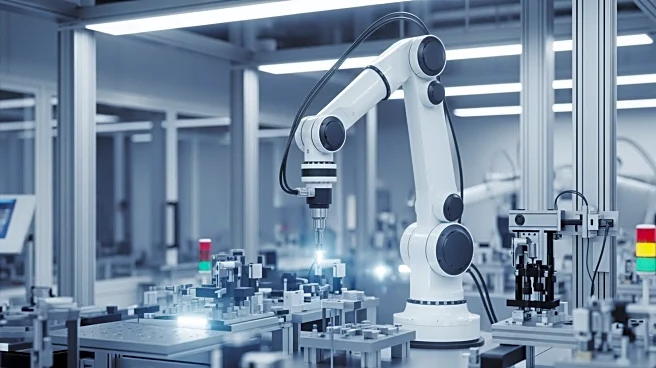What's Happening?
Artificial intelligence is transforming the manufacturing industry by automating operational tasks and improving product quality. AI tools are being integrated with ERP software to enable predictive maintenance, real-time quality control, and better forecasting.
Manufacturers are using AI to address challenges such as labor shortages and high costs, while enhancing customer service and product output. The technology is being embedded into everyday workflows, allowing manufacturers to scale AI solutions without disruption.
Why It's Important?
AI's integration into manufacturing is crucial for enhancing efficiency and competitiveness. By automating routine tasks and optimizing processes, manufacturers can reduce costs and improve product quality. The adoption of AI technologies supports innovation and addresses longstanding industry challenges, positioning manufacturers as leaders in technological advancement. As AI becomes more prevalent, it may lead to new business models and revenue streams, driving growth in the manufacturing sector.
What's Next?
The continued adoption of AI in manufacturing is likely to drive further innovation and investment in smart manufacturing technologies. Manufacturers may increasingly focus on developing AI-driven solutions to enhance efficiency and product quality. Industry leaders may need to collaborate to establish standards and frameworks that support AI integration while ensuring data privacy and security. The success of AI in manufacturing could also encourage other sectors to explore similar technological advancements.
Beyond the Headlines
The use of AI in manufacturing raises ethical considerations regarding data usage and privacy. As AI systems become more integrated, there will be a need for transparent policies to protect consumer data and ensure responsible use. Additionally, the shift towards AI-driven solutions may impact employment in traditional manufacturing roles, necessitating workforce adaptation and retraining.

















